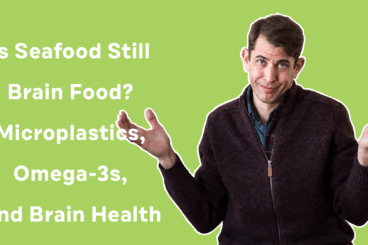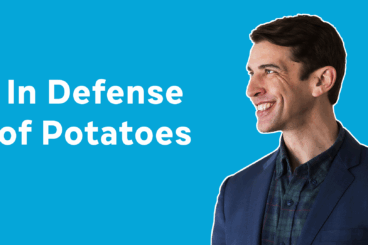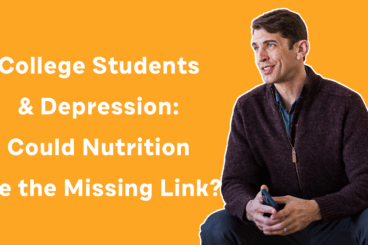I recently took the stage at the VivaFresh Expo, a convention of produce farmers. As I looked out on the men and women in the audience I was in awe as I considered the magnitude of their work; they grow our food and ensure the grocery store is stocked with fresh, beautiful, healthy and safe produce.
Look at your plate today. What do you see? Any greens? The first tenant of “Eat Complete” is to eat a plant-based diet. Who grew those plants? The Food as Medicine movement is getting more traction, and at the very root of the movement are these farmers. So as I looked out at an audience of the people that keep us fed, I felt a deep sense of purpose, and gratitude to be given the opportunity to speak to them. I also felt compelled to say thank you from all of us eaters. These men and women with such important jobs are humble. They don’t see themselves as special, just living out their callings to work the earth and carry on what generations before them started.
I was also astounded by the farming industry in general. Consumption of fresh produce is up over 50 percent in the last 30 years! The consumption of some plants, like kale, has grown to amounts never imagined. Produce growers are incredibly innovative and responsive to what we want to eat. What something like the kale craze means to this audience is not measured in internet clicks, headlines or menu appearances but acres – the currency of their business. One example was Jimmy Bassetti, owner of J & D Produce, who told me his farms were harvesting 25 acres of kale…every week, compared to 2 acres a week just a few years ago.
I met a man who managed the global supply of celery, over 160,000 acres. He educated me about celery straws and different varietals being grown. For the first time I thought about the marvel of bagged salads – they didn’t even exist a few years ago. Today these are a top seller.
I spotted some of the largest kale stems I had ever seen, and I’ve seen a lot of kale!
I spoke to two farmers and asked them how they were growing kale in Mexico. Kale grows best in the cold. They explained their production process to me, and also that their farm was 8000 feet above sea level in the mountains.
From drones managing water use, to solar powered refrigerated trucks, an onion so sweet it is edible raw, to a tomato varietal that has 50 percent more lycopene, I was immersed in the very sources of the river of our food supply, and I was drinking up it’s refreshing bounty.
I was in awe at the technology, diversity, innovation and quite frankly the responsiveness of this industry. Despite generations old businesses, they never slow – they listen to the consumer and they change. Honestly, I was a little jealous. What if medicine responded this nimbly to our patients and customers? What is the disruptive innovation that has really changed your experience in the doctor’s office? Produce farmers have a lesson for all of us in medicine…Grow!
Initially, I wondered why they chose a psychiatrist to give the keynote speech. But after meeting and talking to these amazing men and women it started to become very clear to me. Our mental health depends on their mental health. Imagine the stresses our farmers face: fluctuating markets, intensive capital risks, inclement and rapidly changing weather, water shortages, immigrant labor issues, and of course risks of one bad box of produce making national headlines if it causes illness. (All that plus the pressure to be the first to grow the next kale.)
While I was there to speak about the magnificent benefits of the products they grow, and the benefits they have for brain health, I had another motivation. As a psychiatrist in our one session together, I gave them the information they needed to ensure their brains were optimally nourished. I told them, “We eaters need you growers healthy and happy. Our food supply and our health depend on you and the plants you grow.”
At the end of my talk, I was presented with the Healthy Living Award, by The Packer, a produce industry newspaper. In reality, this award belongs to many of you, the kale heroes out there changing school and hospital food, the wellness warriors spreading the message of eating more rainbows, all of you who send me insightful comments and question, words of encouragement, or stories of your personal journey with food and mental health. To all of you I say thank you as well.
The team at National Kale Day also deserves a special mention. Kale consumption is up 710% since 2011 and this is because of the fine work of people like: Melinda Goodman, Jennifer Iserloh, Ellen Emerson, Uli Iserloh, and the great team of Kale Ambassadors who spread our message of health globally.
Folks, I’m excited to say that I think we are just getting started. Next time you buy produce, check out the label. Maybe give that farm and its farmers, a shout out on social media, send them an email, or better yet, mail them a handwritten thank you note. We don’t spend enough time honoring the folks who actually grow the food we eat. I’m thankful my family and I got spend the weekend at the VivaFresh Expo, and that we got to meet the wonderful people who grow our food. I am eternally grateful for this experience, and will always remember it fondly.









A grateful shout out to all our farmers growing our food as medicine and to shrinks like you Dr. Ramsey, king of kale!
Kathie Madonna Swift MS RDN LDN FAND
Thanks for that article. I am a vegetarian and a practitioner of Ayurveda. Ayurvedic nutrition is based on six tastes- sweet, sour, salty, bitter, pungent and astringent. Bitter taste, under which the Kale, arugula, endive, chard, romaine lettuce families fall under, has therapeutic qualities. It lowers blood sugar for example. IT is also cooling which is one of the reasons for eating more of these in the summer time. This taste is also effective in inflammatory conditions of the bowel including GERD and duodenal ulcer. I have often used it for H.pylori, ulcerative colitis and Crohn’s.
The growers of these products, and all vegetables and fruits deserve our eternal and grateful thanks. “If you eat good food, you would not need any medicine. If you eat the wrong food, no amount of medicine will help you”
Hari Om.